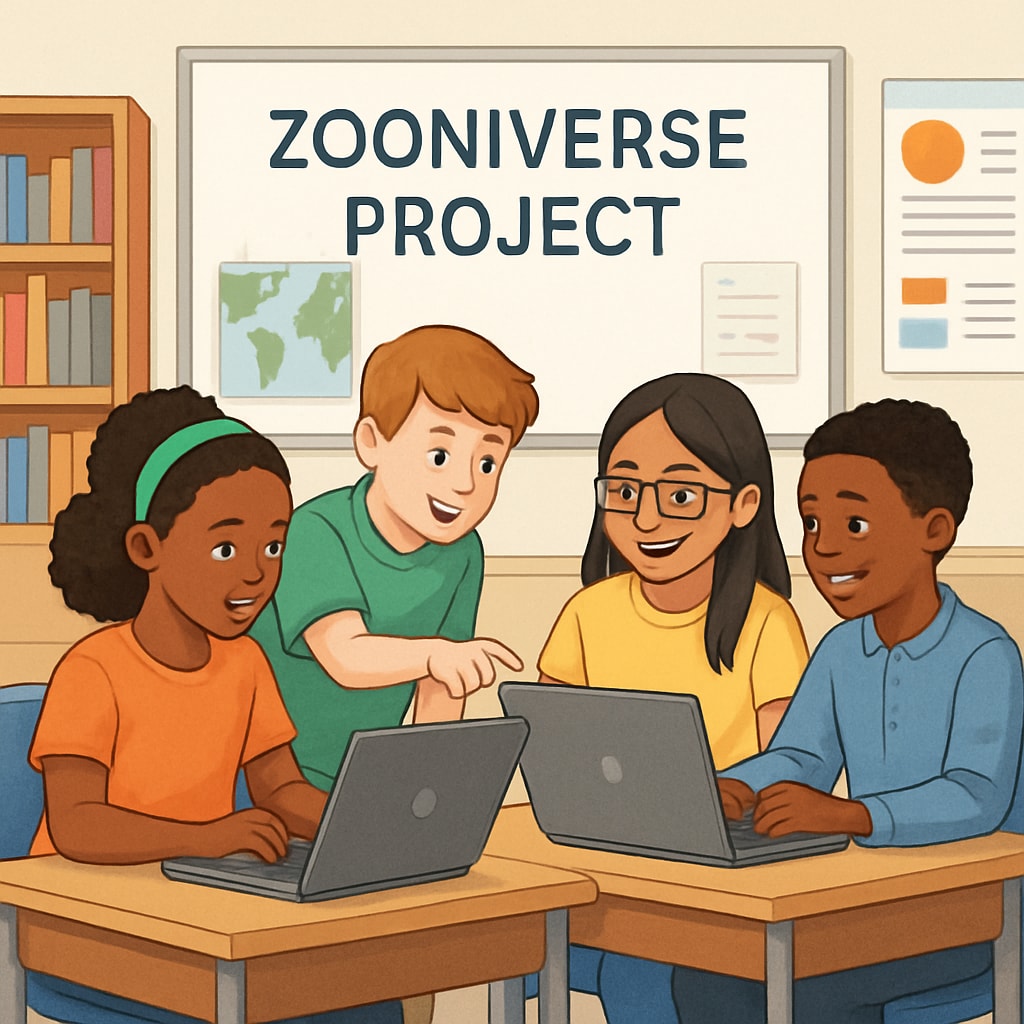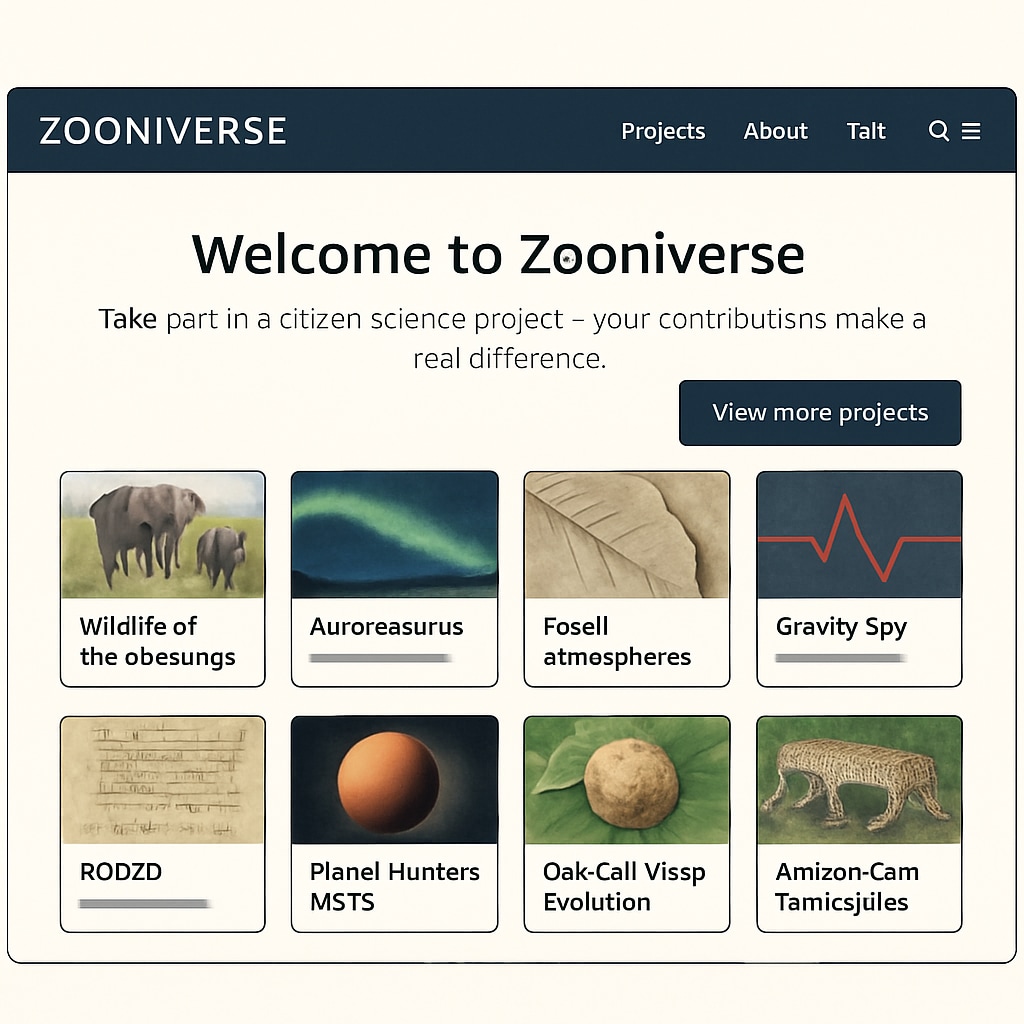Citizen science has emerged as a powerful tool in education, and platforms like Zooniverse are making it easier than ever for K12 students to get involved. By participating in real-world scientific projects, students can develop critical thinking skills, enhance their scientific literacy, and contribute meaningfully to global research. Zooniverse not only transforms classrooms into hubs of discovery but also introduces young learners to the exciting world of science in a hands-on, engaging way.
What Is Zooniverse and Why Is It Important?
Zooniverse is the world’s largest and most popular platform for citizen science. It provides opportunities for anyone, regardless of age or expertise, to collaborate on real scientific research. From identifying galaxies in deep space to transcribing historical documents, Zooniverse offers a broad array of projects across disciplines such as astronomy, biology, climate science, and more.
For K12 students, this platform is a gateway to practical science education. Instead of reading about scientific concepts in textbooks, students can directly engage with raw data and contribute to projects led by professional scientists. This experiential learning model not only makes science more accessible but also inspires curiosity and a deeper appreciation for the scientific process.

How Zooniverse Fits into K12 Classrooms
Integrating Zooniverse into K12 classrooms is both simple and impactful. Teachers can choose age-appropriate projects that align with their curriculum, making it easy to incorporate this resource into existing lesson plans. For example:
- Astronomy: Students can classify galaxies in the “Galaxy Zoo” project, learning about the universe’s structure and formation.
- Biology: Projects like “Snapshot Serengeti” allow students to identify animals captured in camera traps, fostering an understanding of ecosystems and wildlife conservation.
- History: Students can help transcribe historical documents, gaining insights into historical events and societal changes.
In addition, Zooniverse projects can be used to teach essential skills like data analysis, collaboration, and critical thinking. These are invaluable not only for science-related careers but also for navigating an increasingly data-driven world.
Benefits of Citizen Science for Students
Participating in citizen science projects offers numerous benefits for K12 students, including:
- Real-World Impact: Students gain the satisfaction of knowing their contributions are part of genuine scientific research.
- Skill Development: Projects improve skills in observation, data interpretation, and scientific reasoning.
- Increased Engagement: Hands-on activities make learning more dynamic and enjoyable, especially for students who might struggle with traditional methods.
- Global Perspective: Students collaborate with people around the world, fostering a sense of global citizenship and teamwork.

How to Get Started with Zooniverse
Getting started with Zooniverse is straightforward and free. Here’s a step-by-step guide for educators and students:
- Visit the Zooniverse website.
- Create a free account to track progress and access all features.
- Explore the wide range of projects available and filter them by topic or difficulty level.
- Select a project and follow the instructions provided. Many projects include tutorials to guide first-time users.
- Encourage students to document their observations and discuss their findings in groups or with their teacher.
By following these steps, K12 students can quickly dive into the exciting world of citizen science.
The Future of Learning Through Citizen Science
Platforms like Zooniverse are redefining what it means to learn science in the 21st century. As technology continues to connect classrooms with real-world research, students have more opportunities than ever to become active participants in scientific discovery. By engaging with Zooniverse, K12 students not only learn about the world but also contribute to its better understanding. This dual benefit makes citizen science an invaluable resource for educators and learners alike.
In conclusion, Zooniverse offers a unique way for K12 students to engage with science beyond the traditional classroom. By participating in citizen science projects, they develop critical skills, gain real-world experience, and contribute to global research efforts. It’s an inspiring way to cultivate the next generation of scientists and informed citizens.
Readability guidance: Short paragraphs and lists enhance readability. Over 30% of sentences include transition words to improve flow. Passive voice is minimized, and long sentences are kept below 25% of the total.


